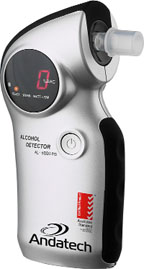Last week we published clauses in the Evidence and Motor Vehicles and Road Traffic (Amendment) Bill 2008. We now give the Explanatory Memorandum which explains the clauses in the bill. All bills have an explanatory memorandum which is not included in the act when the bill is signed by the President.
The Explanatory Memorandum in the Bill reads as follows:
“Clause 2 of the Bill seeks to amend the Evidence Act Cap 5:03 by the insertion of new sections 43A and 43B. This clause inserts a definition of an authorized analyst in the Evidence Act as being a person designated by the Minister responsible for Home Affairs. Section 43A provides for a certificate signed by an authorized analyst or a certificate signed by a registered medical practitioner to be received in any court as evidence of any matter or thing contained therein relating to the examination or analysis of a breath or blood test.
“The new Section 43B provides for the certification of the accuracy of speedometers, radar and weighing devices by the appropriate public officer specified in the document. A document which certifies the accuracy of a speedometer, radar or weighing device may then be produced before the Court. The document shall be prima facie evidence of all matters contained therein.
“Clause 3 of the Bill seeks to amend the motor Vehicles and Road Traffic Act Cap 51:02, to make provision for the authorizing of any member of the Police Force to operate a breath analyzing device or instrument on a driver of a motor vehicle if he is suspected of having consumed alcohol in such a quantity that the proportion in his breath or blood exceeds the prescribed limit.
“The new Section 39A seeks to create an offence for any person who drives or attempts to drive or be in charge of a motor vehicle if he has consumed alcohol in such a quantity that the proportion in his breath or blood exceeds the prescribed limit.
“The new section 39B and 39C make provisions for the carrying out of a breath test and breath analysis, respectively. There are circumstances where a driver is at a hospital as a patient and may only give a specimen of breath after certain conditions are met. A member of the Police Force shall not require any person to undergo a breath test or to submit to a breath analysis if that person has been admitted to hospital for medical treatment and the registered medical practitioner in immediate charge of his treatment has been notified or objects on the ground that compliance therewith would be prejudicial to the proper care or treatment of that person or if it appears by reason of injuries sustained by that person, to be dangerous to that person’s medical condition or at that person’s usual place of abode.
“The new section 39D provides that in the course of an investigation as to whether a person has committed an offence of driving under the influence of drink or drugs or the offence of driving while his breath or blood alcohol levels exceed the prescribed limit a constable may require a person under investigation to provide a sample of blood for a laboratory test if the person is unable, by reason of his physical condition, to provide a sample of breath for a breath test.
However where any person is required to provide a specimen of blood, such specimen shall be taken only with the consent of the person, at a hospital and by a registered medical practitioner or qualified laboratory technician.
“The new sections 39E and 39F contain provisions that are incidental in nature.
“Clause 4 of the Bill seeks to amend section 103 of the motor Vehicles and Road Traffic Act by inserting a new paragraph to empower the minister to make regulations to provide for the procedure for the assessment of points on the conviction of persons for certain traffic offence known as the demerit points system.”






